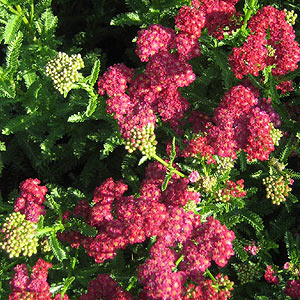
Insects are vital for pollinating crops and breaking down organic matter and we also have the Beneficial Insects ‘Good Bugs’ that prey on other insects.
Insects can be divided into two groups, the good ones, and the bad ones.
Those that eat our crops are regarded as the bad ones. These include the leaf eating and sap sucking insects. And in monoculture, wth lack of diversity of plants this is becoming more of a problem.
Those that help control the bad insects are naturally regarded as the good ones, so beneficial.
By beneficial insects we mean that those will attack insects that eat plants, the leaf munching and sap sucking ones, the nasty insects.
Plants that attract Beneficial Insects
One of the best is the old garden favourite ’Sweet Alyssum’ it flowers in spring to summer and attracts hoverflies.
Its not the Hoverflies themselves that clean up the nasty aphids and mites, its the lavae that clean up you garden for you.
Then we have Blue Tansy, which is Phacelia tanacetifolia, and this attracts bees to the garden in spring, so it is great for pollination of all sorts of crops. It also attracts hoverflies and lacewings.
Achillea millefolium and filipendula both attract parasitic mini wasps, and these lay their eggs on the eggs of moths so, no more caterpillars.
Achillea also attract Lady Bugs as does Tansy, and Tagetes tenuifolia. Lady Bug lavae eat a range of insect pests including aphids.
Comfrey is often mentioned as it does attract insects however it also self seeds so look for the variety ‘Bocking14’ which does not seed so readily.
Dianthus, Marigolds, Cornflowers and Nasturtiums are also useful flowering plants for attracting beneficial insects.
Buckwheat
One plant that has multiple uses is Buckwheat so it gets a special mention.
- You can sow it as a cover crop in summer and as long as you dig it in before it sets seeds. It will not only attract beneficial insects, it will also help suppress weeds.
- Buckwheat also takes up phosphorus from the soil and returns it in a more useable form for other plants.
- You can also cut it before it seeds ad add it to the compost bin.
So encouraging the benefits insects is one way of protecting your veggie gardens
Lacewings, Ladybird bugs and Parasitic wasps are all desirable in the garden
Grow an herbaceous border, native vegetation close to the crops. This ecosystem also encourages small birds that eat moths and other insects.
All of this decreases the need fo pesticides and overcomes resistance to pesticides as well.
